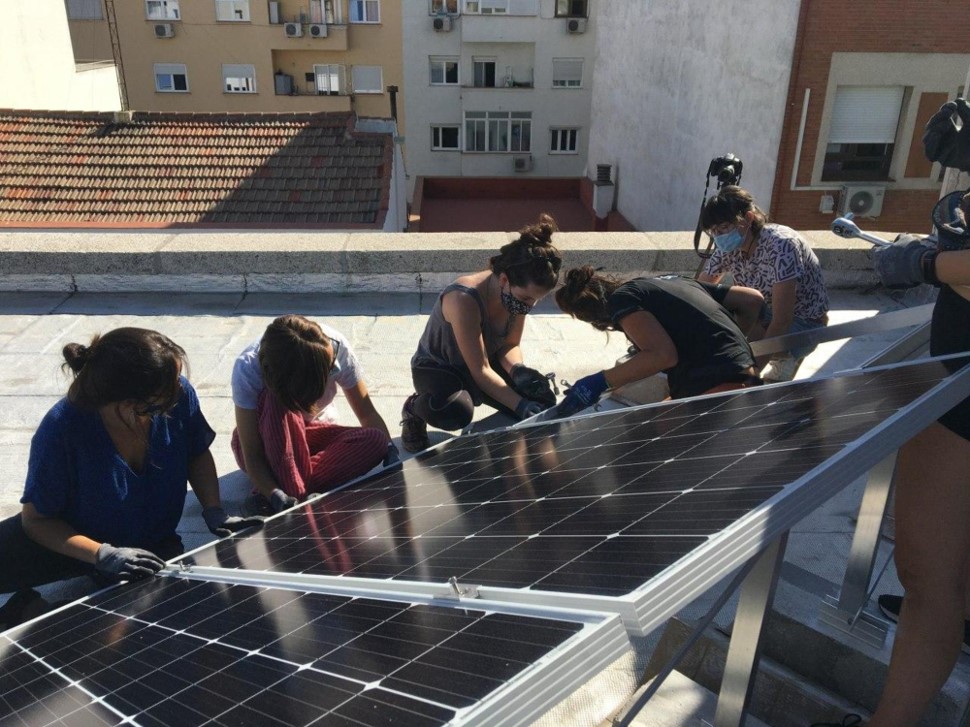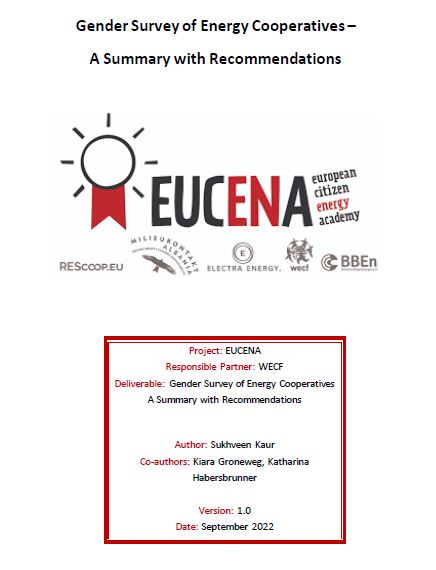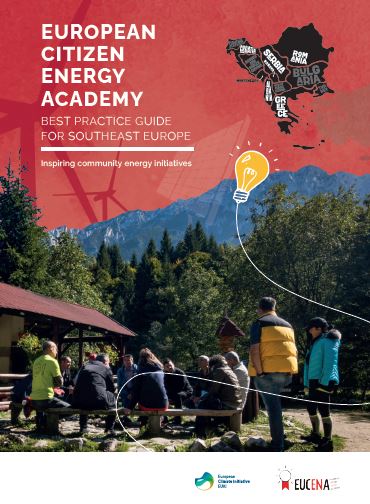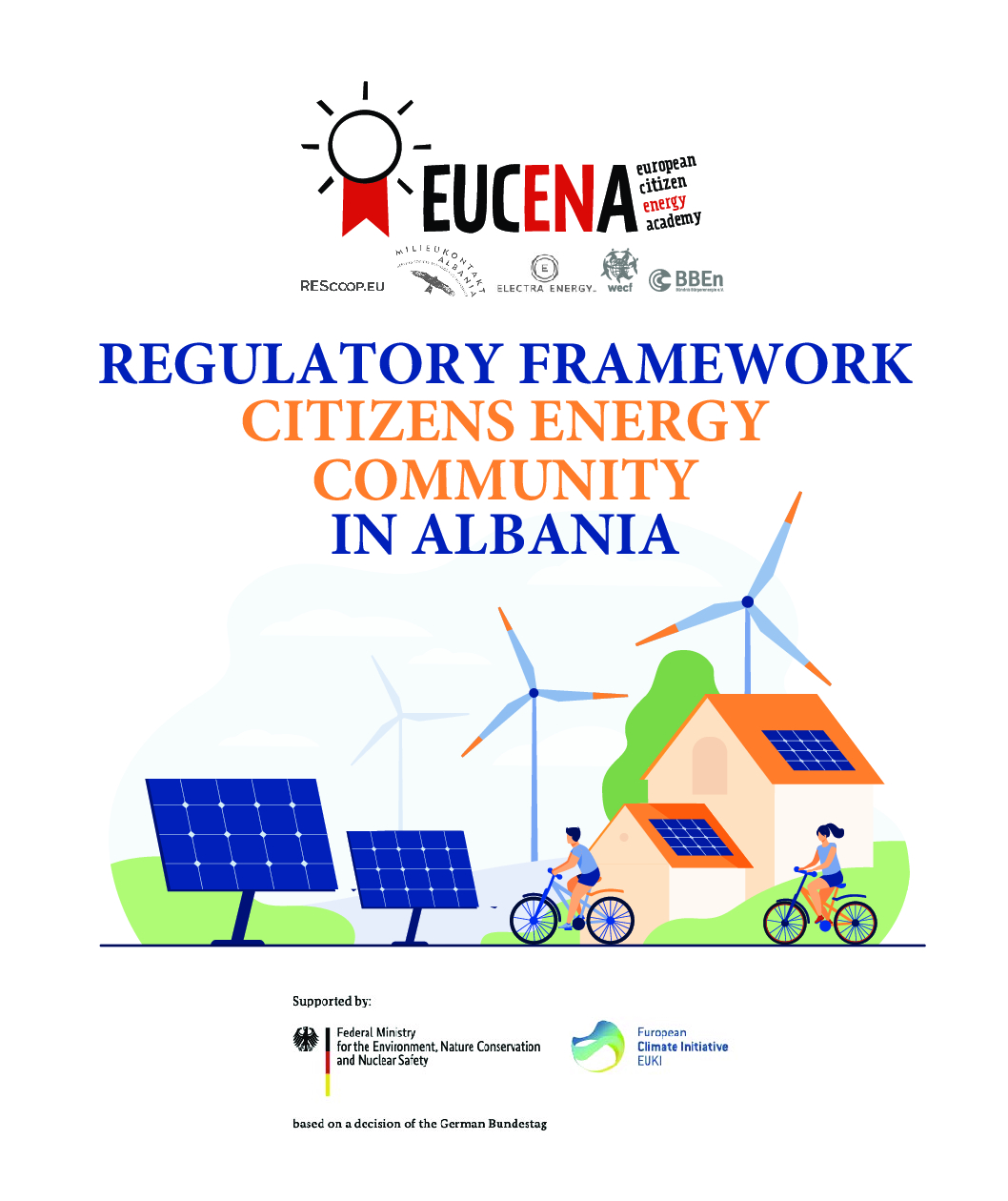EUCENA – European Citizen Energy Academy
This project is completed. The aim of this project was to create and share the necessary knowledge to increase the number of energy communities in Southeast Europe, paying special attention to gender justice and business model innovation.
Awareness Energy Communities Energy Transition Energy Transition and Climate-Neutral Buildings Gender Renewable Energy

Project info
Albania, Germany, Greece
10/20 - 09/22
General public, Public sector, Local governments, Regional governments
702,354.72 €
Contact info
Antonia Proka
- Bündnis Bürgerenergie e.V.
- ELECTRA Energy - Social Cooperative
- Milieukontakt Albania
- Women Engage for a Common Future (WECF)
Background
Citizen energy is a means for citizens to take climate action into their own hands. With the Clean Energy Package and the Electricity Directive, the EU has emphasised the significance of citizen energy for participation, innovation and inclusion. For the first time, EU legislation thus acknowledges the role of community energy ownership meeting its climate and energy objectives – while at the same time driving local innovation. In the long term, the Directive embraced the vision of an Energy Union, where citizens are enabled to become the driving force behind energy transition.

Project
The European Citizen Energy Academy supported the citizen energy movement throughout Europe. It did so by fostering knowledge creation and transfer between Southeast and Central Europe. More specifically, it provided knowledge and tools on community building, development and cooperation between communities. Best practice examples illustrate how to overcome the barriers for citizen energy.
The Academy organised workshops and coaching sessions primarily in Albania, Greece, and Germany. Furthermore, workshop and study tours take place in Bulgaria, Romania, Serbia, Croatia, and Bosnia and Herzegovina. Two summer schools foster cooperation between citizens in Southeast Europe, where citizen energy is just developing, and well-established energy communities in Central Europe.
The project employed an inclusive approach, which involved citizens of different ages and genders as well as socio-economic and ethnic groups. It thus also contributes to overcoming energy and mobility poverty as well as gender inequality.
Results
- CommonEn has been launched, registered, and developed, as the first energy community in Epirus region, close to the Greek-Albanian borders. CommonEn numbers 63 members, has developed its first 100KW collective self-consumption solar park (the first of its kind in Epirus region) and is already planning a second one. CommonEn has raised awareness to over 4500 local citizens and stakeholders. Regarding its economic impact, CommonEn has already managed to raise 159.650 euros from its members. The clean energy produced from its portfolio will exceed 270.000 kWh annually, reducing CO2 by 108 tons yearly.
- Thanks to the ambition of the local rural community and the support of EUCENA The energy communities Friedensfördernde Energiegenossenschaft,Herford eG and Ilmtal eG have both managed to hire their first paid employee in 2022
- By the support of EUCENA the Piskova Solar Community has been launched in southeast of Albania with membership of 20 farmers, 2 NGOs and the administrative unit of Piskova. The initiative has launched a crowdfunding campaign – Let’s Solarize Albania! – and has so far managed to raise 2,980 euros (out of 8,700 euros). This campaign aims to help raise the funds for the construction of an 8 KWp photovoltaic (PV) plant in Piskova village in the South of Albania. The PV system will lead to 5.9 tons of CO2 savings per year (estimated for the electricity generation only during irrigation season). It will also produce 6,398 kwh during the irrigation season (April to September). The energy produced will be used to cover the energy needs of irrigation for 20 local farmers, distributed in a total area of approximately 15 ha, providing significant financial support/savings of about 780 EUR.
Last update: July 2024



